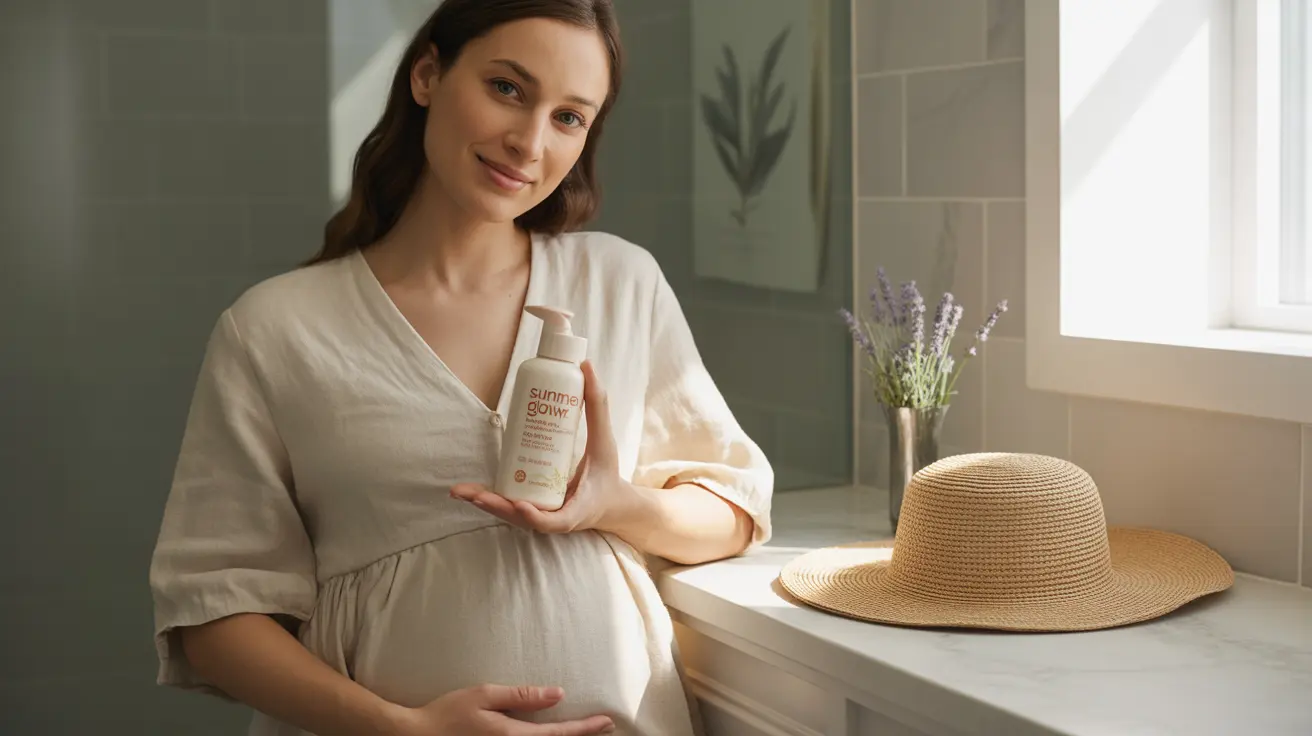Many expectant mothers wonder about the safety of maintaining their pre-pregnancy beauty routines, including tanning. Whether you're considering laying out in the sun, using a tanning bed, or exploring self-tanning options, it's crucial to understand how these choices might affect both you and your developing baby.
During pregnancy, your skin becomes more sensitive, and your body's ability to regulate temperature changes. These factors, combined with the potential risks of UV exposure, make it essential to approach tanning with extra caution during pregnancy.
Understanding UV Exposure During Pregnancy
UV radiation, whether from the sun or tanning beds, can pose several risks during pregnancy. Your skin becomes more susceptible to burning and hyperpigmentation due to hormonal changes. Additionally, overheating from UV exposure can potentially raise your body temperature to unsafe levels, which may affect fetal development.
Risks of Sun Tanning During Pregnancy
Natural sun exposure comes with specific concerns for pregnant women:
- Increased risk of melasma (pregnancy mask)
- Greater likelihood of sunburn
- Potential for overheating
- Dehydration risks
- Increased skin cancer risk
The Dangers of Tanning Beds
Tanning beds are particularly problematic during pregnancy because:
- They emit concentrated UV radiation
- The enclosed space can cause dangerous overheating
- They may increase the risk of folic acid degradation
- The position required can be uncomfortable and potentially unsafe
Safe Alternatives for Achieving a Pregnancy Glow
Self-Tanning Products
While safer than UV exposure, self-tanning products should be approached with caution during pregnancy:
- Choose products with natural ingredients when possible
- Perform a patch test before full application
- Ensure proper ventilation during application
- Consider waiting until after the first trimester
Bronzers and Makeup
Temporary cosmetic solutions offer the safest way to achieve a sun-kissed look:
- Powder bronzers
- Tinted moisturizers
- Wash-off body bronzers
- Mineral-based makeup products
Safe Sun Practices During Pregnancy
If you need to be in the sun, follow these essential safety measures:
- Use broad-spectrum SPF 30+ sunscreen
- Wear protective clothing and a wide-brimmed hat
- Seek shade between 10 am and 4 pm
- Stay hydrated
- Monitor your body temperature
Frequently Asked Questions
Is tanning while pregnant safe for my baby and me?
Tanning while pregnant, especially through UV exposure, is not considered safe for you or your baby. UV radiation can increase your risk of overheating and skin damage, potentially affecting fetal development.
What risks does UV tanning pose during pregnancy?
UV tanning during pregnancy can lead to overheating, increased risk of skin cancer, severe sunburn, dehydration, and melasma. It may also break down folic acid, which is crucial for fetal development.
Are self-tanning lotions or spray tans safe to use when pregnant?
Self-tanning products are generally considered a safer alternative to UV tanning, but it's best to consult with your healthcare provider first. Choose products with natural ingredients and ensure proper ventilation during application.
Why should pregnant women avoid tanning beds and excessive sun exposure?
Pregnant women should avoid tanning beds and excessive sun exposure because they can raise body temperature to dangerous levels, increase skin cancer risk, and cause severe sunburn due to increased skin sensitivity during pregnancy.
How can I safely get a tan or glow during pregnancy without UV exposure?
Safe alternatives include using bronzing makeup, tinted moisturizers, and pregnancy-safe self-tanning products. Always choose products specifically tested for pregnancy safety and consult with your healthcare provider before use.
Remember, while maintaining your appearance is important, protecting your health and your baby's well-being should always be your primary concern during pregnancy. There are many safe ways to achieve a healthy glow without risking exposure to harmful UV radiation.




